
Naming every expedition participant in a telepresence-enabled mission is next to impossible! Many from dozens of institutions across the country have provided input into the expedition plan and are expected to participate. However, we've assembled information about the members of the science and remotely operated vehicle teams who are physically onboard NOAA Ship Okeanos Explorer, and whose voices you are likely to hear most often when watching the live video.
And of course, none of this exploration would be possible without the work of the dedicated NOAA Commissioned Officer Corps and civilians who operate NOAA Ship Okeanos Explorer as part of NOAA's fleet managed by NOAA's Office of Marine and Aviation.
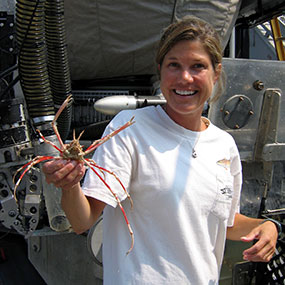
Co-science Lead
Research Geneticist
U.S. Geological Survey
Dr. Cheryl Morrison is a Research Geneticist at the U.S. Geological Survey (USGS) Leetown Science Center in Kearneysville, West Virginia. She has always loved the ocean, from Maine tide pools to tropical coral reefs. She followed this passion through an undergraduate degree in Marine Biology from the University of North Carolina at Wilmington (1991), and a PhD from Florida State University in Biological Sciences (1997). Cheryl is interested in marine biodiversity and how diversity is generated and maintained by life history traits and physical oceanographic conditions that organisms experience. She has been studying cold water coral ecosystems for over a decade in the Gulf of Mexico and Atlantic and Pacific Oceans and has participated in 24 research cruises using submersibles and remotely operated vehicles (ROVs) to explore and characterize benthic habitats. Her current research involves the utilization of genetic and genomic techniques to aid in the study of biodiversity, population, and community structure at vulnerable deep-sea habitats (deep-sea corals, cold seeps, and canyons). During the mission, she will be co-science lead, helping to guide ROV dives, providing narrative regarding the biology observed, and interacting with shore-based scientists.
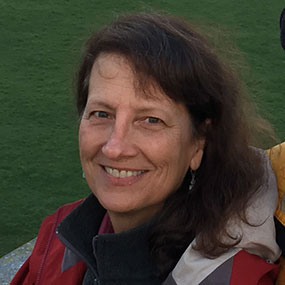
Co-science Lead
Associate Professor
College of Charleston
Dr. Leslie Sautter has been teaching marine geology at the College of Charleston for over two decades. She earned her Ph.D. in Geology at the University of South Carolina and has a background in paleoceanography as well as coastal research and geoscience education. She is founder and director of the BEnthic Acoustic Mapping and Survey (BEAMS) Program (http://oceanica.cofc.edu/beamsprogram ) which allows undergraduate students to conduct research using state-of-the-art seafloor mapping software. Leslie has been on many expeditions to study the seafloor geology and biota using ROVs and submersibles, and thoroughly enjoys taking students out to sea to provide experiential learning experiences. She continues to assist with development of education programming and web resources.
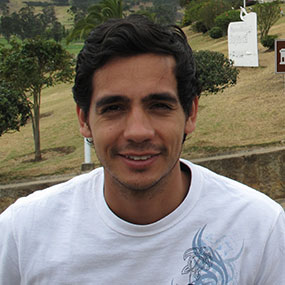
Global Foundation for Ocean Exploration
Fernando graduated from the University of Hawaii at Manoa with a B.S. in Mechanical Engineering. During his studies, he had experience in several fields including conceptual design, aerospace research, mechanical design, robotics and software development. From these activities he was able to intern for NASA at the Jet Propulsion Laboratory, present research in a national conference, and even coauthor a technical paper in the Journal of the Astronautical Sciences. His most recent position was at the Field Robotics Laboratory (FRL) where he helped support operations, testing and software development for two unmanned surface vehicles. From his time in FRL, he discovered a true passion for development and design of robotic systems. Originally from Colombia, Fernando enjoys outdoor activities and currently resides in State College, Pennsylvania.
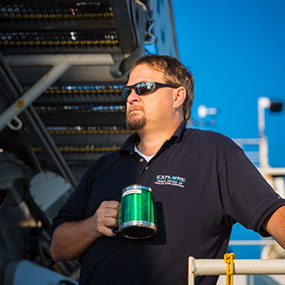
Electronic Systems Engineer
Global Foundation for Ocean Exploration
Roland Brian brings 29 years of experience and a keen eye for precision HD video to the program as a video/satellite and telepresence engineer. Roland began his career in the U.S. Air Force where he worked as a Satellite Communications Engineering Technician with visions of working on the U.S. Space Station. He traded in that quest for one of deep-ocean exploration and sharing beautiful imagery with the world. He has worked with the NOAA Office of Ocean Exploration and Research (OER) and the Okeanos Explorer Program since 2009 and has been engaged in every telepresence-enabled remotely operated vehicle (ROV) expedition. He has also provided services for other projects using OER’s mobile telepresence system, including the 2012 Ring of Fire Expedition. His duties aboard NOAA Ship Okeanos Explorer include operation and maintenance of the ship's Telepresence and video systems, including on ROV Deep Discoverer and the Seirios camera platform. Again, Roland’s experience embodies the breadth and depth of knowledge the OER program encourages. When not fine-tuning the video and telepresence systems or training and mentoring new team members, he's actively involved in the editing process of our ever-expanding ocean exploration video library. While not at sea, Roland enjoys life with his wife and family in sunny Sarasota, Florida.
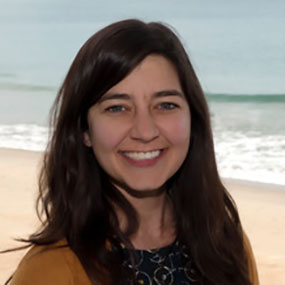
Sample Data Manager
Department of Invertebrate Zoology
Smithsonian Institution National Museum of Natural History
Dr. Stephanie L Bush has been using remotely operated vehicles (ROVs) in her research for over 15 years. She holds a Ph.D. in Integrative Biology from the University of California, Berkeley, where she used ROVs to study the defensive behaviors of deep-sea squids. She's performed fieldwork in the North Pacific, Sea of Cortez, Antarctica, and the Caribbean, and visited the seafloor of the North Atlantic at 1,400 meters in a manned submersible. Her observations and collections have led to the discovery of new species. Stephanie works at the Smithsonian Institution (SI) National Museum of Natural History (NMNH) where she explores marine biodiversity of the U.S. outer continental shelves by sequencing DNA from recently collected specimens as well as those that have been housed at the SI NMNH for decades.
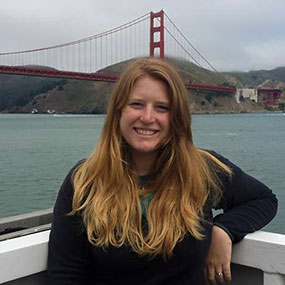
Expedition Coordinator
NOAA Office of Ocean Exploration and Research
Kasey Cantwell is a Field Operations Specialist with NOAA's Office of Ocean Exploration and Research (OER). Kasey has a Master of Science degree in Marine Affairs and Policy and Marine Geology and Geophysics, and a Bachelor of Science degree in Marine Science and Biology, both from the University of Miami Rosenstiel School of Marine and Atmospheric Science. Kasey is responsible for coordinating telepresence-enabled expeditions conducted onboard NOAA Ship Okeanos Explorer. Since joining OER in 2012, she has coordinated over a dozen expeditions and projects, including multidisciplinary expeditions to the Atlantic submarine canyons, the Marianas, Pacific Remote Islands Marine National Monument, now known as Pacific Islands Heritage Marine National Monument, and Glacier Bay National Park.
Beyond deep-sea exploration, Kasey’s background includes imagery-based mapping of coral reefs throughout the Caribbean, long-term ecosystem monitoring, and evaluating resource management strategies to improve efficiency and data quality.
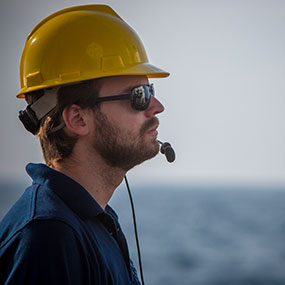
Mechanical Engineer
Global Foundation for Ocean Exploration
Joshua Carlson attended the University of Massachusetts, Dartmouth, where he received a B.S. in Mechanical Engineering with minor in Business Administration. He went on to receive his M.S. in Marine Observation Technology from the University of Massachusetts, Dartmouth School for Marine Science and Technology. Josh has a diverse background, encompassing the use of autonomous underwater vehicles (AUVs) and other types of ocean observation platforms for the purpose of studying ocean turbulence. He has designed and built a deep-ocean camera platform for filming deep-water krill in the Antarctic Ocean and provided mechanical engineering and software capabilities on the Woods Hole Oceanographic AUV Sentry during a recent cruise aboard the NOAA ship Okeanos Explorer. In his current position with NOAA’s Ocean Exploration program, Josh provides engineering, programming, and at-sea support, acting in the capacity of navigator, pilot, and co-pilot for NOAA’s 6000-meter-rated remotely operated vehicle system, Deep Discoverer. His broad range of skills in both engineering and software control development makes him an invaluable member of our team. When not traveling, Josh resides in Fairhaven, Massachusetts.
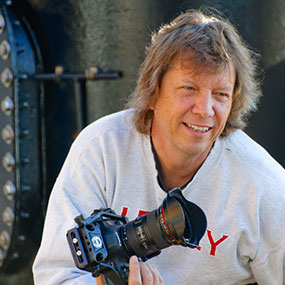
Photographer and Producer
Global Foundation for Ocean Exploration
For 34 years, Emmy-award winning photographer and producer Art Howard has helped viewers experience life through images from 50 countries and seven continents. A native North Carolinian, Art has followed researchers aboard multiple deep-sea missions, documenting the excitement and challenges of offshore reef exploration. Art will use the latest video technology to bring viewers as close as possible to life at sea from the surface to depths of 3,000 feet, capturing both the scientists and the life they seek to understand. Howard has spent the last 11 years independently producing media for the North Carolina Museum of Natural Sciences.
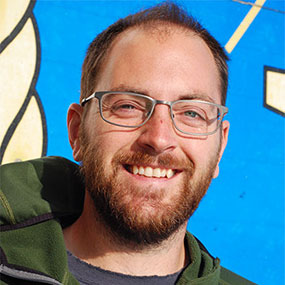
Research Scientist
Center for Coastal and Ocean Mapping/Joint Hydrographic Center at the University of New Hampshire
Kevin Jerram is a Research Scientist with the Center for Coastal and Ocean Mapping / Joint Hydrographic Center at the University of New Hampshire (UNH). His first experience aboard the Okeanos Explorer was an expedition to acoustically detect and characterize methane seeps in the Gulf of Mexico in 2011, forming the basis for his M.S. thesis in Ocean Engineering at UNH. Kevin has since been involved in 20+ seafloor and midwater mapping expeditions in the Atlantic, Pacific, and Arctic Oceans aboard a variety of U.S. and international vessels. With the National Science Foundation-funded Multibeam Advisory Committee, he supports echosounder system integrations and independent evaluations to enhance multibeam data quality across the U.S. academic fleet.
Kevin was initially drawn to ocean mapping because it blends engineering with exploration. He greatly enjoys supporting the ROV team’s amazing work by producing up-to-date, high-resolution bathymetric surfaces for the pilots and scientists to use during their dives. When back on land, Kevin can be found hiking with his wife and foster dog(s) in the mountains of Vermont and working on their good old sailboat.
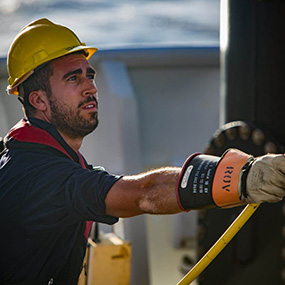
Electrical Engineer
Global Foundation for Ocean Exploration
Sean Kennison holds a B.S. in Mechanical Engineering with a minor in Engineering Mechanics from Pennsylvania State University. He first sailed on the Okeanos Explorer as an intern and member of the Engineering Group, where he performed tasks associated with the launch, operation, and recovery of the ROV system. He has also worked shoreside, designing mechanical parts for the ROVs and assisting with assembly and testing of previously and newly installed equipment. Sean also assisted with installing electronics, testing, data analysis, and troubleshooting on the vehicle. Most recently, he assisted in assembling and modifying a new bio storage box for the Deep Discoverer ROV. While at Penn State, Sean served as team leader on a number of engineering design projects.
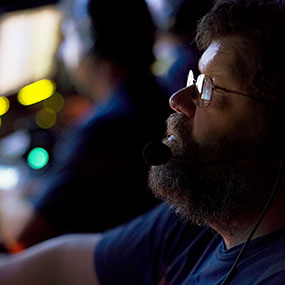
Global Foundation for Ocean Exploration
Bob has almost 50 years’ experience in broadcast engineering. Following a 37-year career with RIPBS, departing in 2006 as Chief Engineer, he worked for the Sea Research Foundation and Ocean Exploration Trust as the Senior Broadcast Engineer. He was responsible for the design, commissioning, and maintenance of the Inner Space Center located at the University of Rhode Island Graduate School of Oceanography. He also worked on many research vessels and supported telepresence operations from NOAA Ship Okeanos Explorer, E/V Nautilus, R/V Endeavor, and R/V Atlantis, plus many other UNOLS ships.
Bob is married and has six adult children, nine grandchildren, and a great-grandson. He and his wife Donna play French horn and are active in many community music ensembles in Rhode Island.
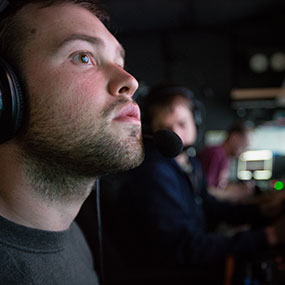
Electrical Engineer
Global Foundation for Ocean Exploration
Jeff Laning holds a B.S. in Electrical Engineering from the University of Vermont. He started his career as an intern with Greensea Systems, Inc., where he worked on design, development, and integration of components and software associated with remotely operated vehicles and autonomous underwater vehicle systems.
Jeff is one of our youngest members and came to our group with a desire to learn new and complex electrical systems. Electrical engineers interested in and capable of working on deep submergence systems are one of the hardest positions to fill. Jeff has done a great job as a key member of the team that built Deep Discoverer and has become a skilled pilot, co-pilot, and navigator. His contribution to ocean exploration is certainly something to be proud of and we hope that other young engineers will be inspired by what he has accomplished. Jeff currently resides in Vermont.

Mechanical Engineer
Global Foundation for Ocean Exploration
Andy earned a Bachelor's in Ocean Engineering from Texas A&M. He then obtained a Master's in Mechanical Engineering focusing on Robotic Artificial Intelligence and Systems Engineering from Embry Riddle in Daytona Beach. After college, he lent his knowledge to the oilfield service industry for four years, living in various places including Wyoming, North Dakota, and Alaska while on assignment. Recently, he has come back to the mechanical and software side of engineering to contribute to the team at the Global Foundation for Ocean Exploration. He loves traveling, exploring, and being outdoors.
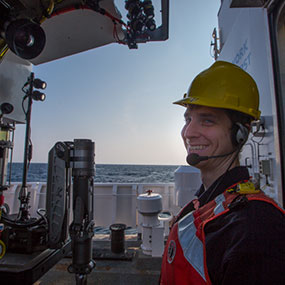
Systems/Robotics Engineer
Global Foundation for Ocean Exploration
Bobby Mohr is a Systems/Robotics Engineer, specializing in autonomous and remotely operated underwater vehicles. He holds a B.S. in physics and graduated cum laude from Davidson College in 2009. Bobby started his career as an engineering technician with Greensea Systems where he was responsible for the design, development, and testing of autonomous underwater vehicle control systems. Like many of our engineers, Bobby realized that he would enjoy the design-build process more if he was able to also pursue the challenges of making vehicles work successfully at sea.
After serving on several projects at Greensea where he specialized in electrical and software systems support, Bobby joined the Ocean Exploration program as an electrical systems engineer. During his time at Greensea and now with NOAA, he has been one of the key electrical engineers on the development of our 6000-meter-rated remotely operated vehicle system, Deep Discoverer and Seirios. Like many of our engineers, he has multiple skills and is a tremendous asset to our program.
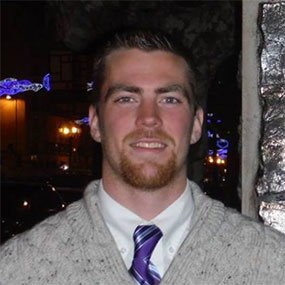
Ocean/Mechanical Engineer
Global Foundation for Ocean Exploration
Lars Murphy is an Ocean/Mechanical Engineer for the Global Foundation for Ocean Exploration. He holds a B.S. in Ocean Engineering and a B.A. in Spanish from the University of Rhode Island. Growing up on the coast of Maine, he developed a constant pull towards the unknown, the unexplored, and chaotic environments – and acquired a drive to bring meaning, understanding, and order to these areas. Lars has a professional background working with AUVs and other subsea robotics systems both internationally and nationally and now supports ROVs Deep Discoverer and Seirios.
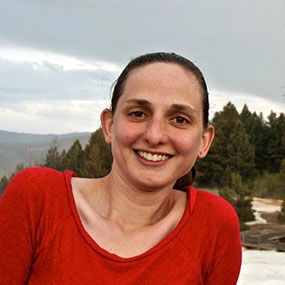
Video Producer
Global Foundation for Ocean Exploration
Emily Narrow is a video producer and editor whose work focuses on science and nature. She earned a Bachelor of Arts degree from Oberlin College where she double-majored in Biology and Cinema Studies. She also holds an MFA degree in Science and Natural History Filmmaking from Montana State University. She was a video producer for a production company in Washington, D.C. for three years, where she made public service announcements, ad campaigns, and promotional videos for non-profit and environmental organizations. Since 2010, she has been a freelance video producer, creating videos for clients such as the National Park Service, NOAA, and Montana State University. Most recently, she produced and edited a series of educational videos about camping and hunting for Zero Point Zero Productions. Emily first started sailing onboard the Okeanos Explorer in July 2016, and has since sailed on nearly half a dozen expeditions. Emily currently resides in Bozeman, Montana.
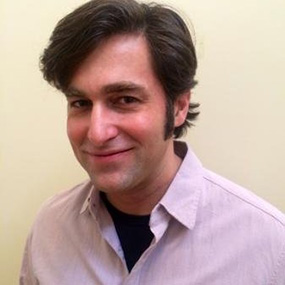
Software/Data and Satellite Engineer - ROV Pilot/Copilot
Andy started his professional career in the U.S. Navy where he ran a small electronic test system calibration laboratory and instructed NATO students in Satellite Ground Station repair. Following the Navy, he obtained a B.A. in History and a M.S. in Computer Science from the University of Vermont before hiring on as the Lead Software Engineer at Greensea Systems. During his tenure at Greensea, Andy designed, developed, and supported over 40 widely varying custom robot control systems and their operator interfaces for government and industry. Notably, Andy was the software lead on our very own Deep Discoverer and Seirios remotely operated vehicles.
Andy reports he so enjoyed working with the NOAA Office of Ocean Exploration and Research team, and their exploration mission, that he asked to join. Andy now splits his time between developing software; managing science and engineering data; maintaining the satellite communications system; and navigating, piloting, and co-piloting the deep-submergence vehicles. During his free time you can often find him in Monkton, Vermont.
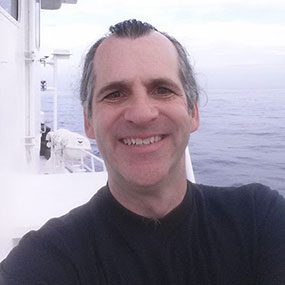
Telepresence Coordinator
NOAA Office of Ocean Exploration and Research
James Rawsthorne is the telepresence coordinator for NOAA Office of Ocean Exploration and Research (OER), and has been a web developer for NOAA OER for the past five years. He enjoys assisting researchers in publishing their studies and research to the web and supporting telepresence technology. He is a graduate of Flagler College with a degree in Communications and Political Science. He previously worked at the National Renewable Energy Laboratory for 13 years as a lead web developer in charge of integration and content development for their video and live data program, and as a multimedia developer at Mathematica Policy Research in Washington, DC.
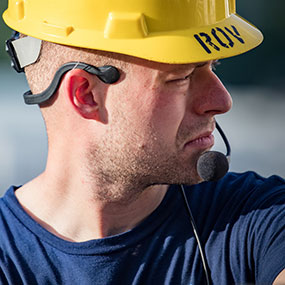
ROV Engineer
Global Foundation for Ocean Exploration
Dan Rogers has a diverse background in engineering, media production, and education. Daniel holds a B.S. in Physics and earned a M.S. in Mechanical Engineering from the University of Hawaii in 2013. Before starting his graduate program, Daniel worked as a Science Educator at the Bishop Museum in Honolulu. He continued to work with the museum as a Digital Media Producer while in school, partnering with the Polynesian Voyaging Society to produce a 30-minute film about traditional sailing and star navigation for the fulldome planetarium format. He has now been working as an ROV engineer and videographer on the Okeanos Explorer for over four years.
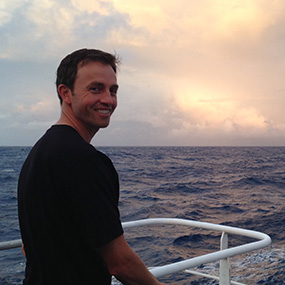
Mapping Lead
NOAA Office of Ocean Exploration and Research
Derek Sowers holds a B.S. in Environmental Science from the University of New Hampshire and an M.S. in Marine Resource Management from Oregon State University. He has 14 years of previous coastal research and management experience, including work for NOAA's National Estuarine Research Reserve network and the Environmental Protection Agency's National Estuary Program in both Oregon and New Hampshire. Derek has participated in ocean research expeditions in the Arctic Ocean, Gulf of Maine, Gulf of Mexico, Pacific Northwest continental shelf, North Atlantic Canyons, and New England Seamounts.
During at-sea expeditions, Derek leads sonar data collection by planning the ship's mapping routes and producing maps of seafloor and water column features to guide exploration. On shore, Derek works at the Center for Coastal and Ocean Mapping/Joint Hydrographic Center at the University of New Hampshire to coordinate future mapping expeditions, process and archive data, and collaborate with other scientists. Derek is also a part-time Oceanography Ph.D. student focused on using Extended Continental Shelf and Okeanos Explorer data to develop marine ecological classification maps.
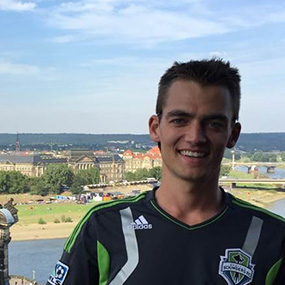
ROV Engineer
Global Foundation for Ocean Exploration
Levi Unema is an Eagle Scout from Lynden, Washington. He holds a B.S. in Electrical Engineering along with a Certificate in Electric Power Engineering from Michigan Technological University. Levi has experience in a number of different industries, ranging from the railroad, to steel mills, to automotive supplier light manufacturing.
Currently living in west Michigan, he enjoys being outdoors and staying active.
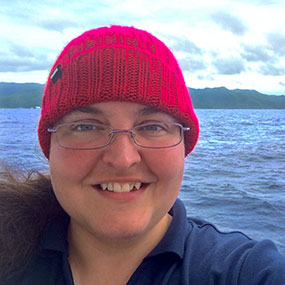
Video Producer
Global Foundation for Ocean Exploration
Annie White is an award-winning documentary filmmaker, photographer, and biologist who specializes in conservation biology and animal behavior. She holds a B.A. in Environmental, Population and Organismic Biology from the University of Colorado, and is currently finishing an MFA degree in Science and Natural History Filmmaking at Montana State University. Her career has taken her from collecting dinosaur fossils, to studying wild wolves, to filming cougars, grizzly bears, and now, deep-sea creatures. The years she spent living and traveling with captive ambassador wolves kick-started Annie’s interest in science education and inspired her to reach out to larger audiences through film. Her credits include projects for NOAA, BBC, National Geographic WILD, Travel Channel, Curiosity Stream, and various non-profit groups. In all of her work, Annie endeavors to bring together science, wildlife conservation, and compelling narratives to spark wonder and draw audiences into the lives of real animals. When not at sea, Annie loves to travel, write, and look for any excuse to get out into the natural world.